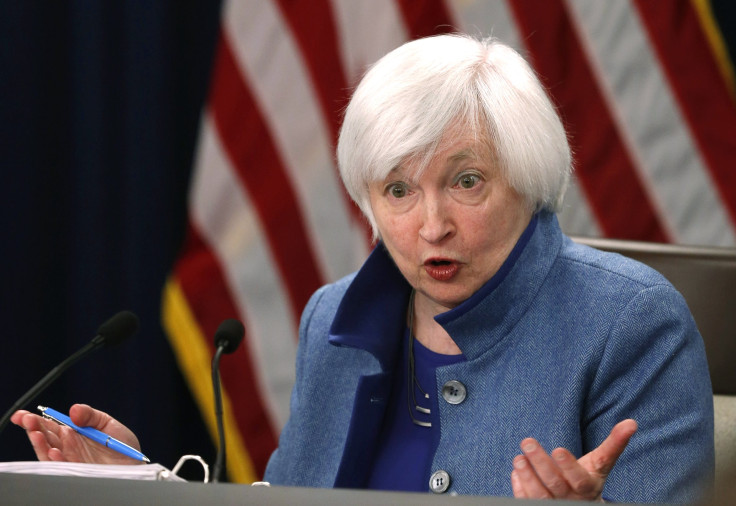Donald Trump And The Fed: President-Elect Could Cause Instability, Debt Crisis, Janet Yellen Warns

Federal Reserve Chair Janet Yellen warned reporters of the potential for economic instability under President-elect Donald Trump in a Wednesday news conference following the central bank’s decision to raise its interest rate target. She also emphasized the Fed’s independence from other areas of government — namely, the executive branch — and pledged to stay in office for the remaining 14 months of her four-year term.
Trump's $1 trillion fiscal stimulus proposal, which could speed up economic growth to the point of serious volatility, is “not obviously needed,” she said, noting that the labor market was near its maximum potential, with unemployment falling to 4.6 percent in November.
If Trump were to juice the economy with a massive spending package — a fiscal policy generally used as a response to recession, and often opposed by conservatives in Congress wary of mounting debt — he would likely cause the economy to overheat, forcing the Fed to hike rates at a faster pace to avoid economic instability.
Along with the Fed’s decision to raise the target for the federal funds rate, a bank-to-bank lending rate that influences mortgage, bond and other interest rates, Yellen announced Wednesday that the central bank planned to hike rates three times in 2017.
The higher-than-expected number of planned rate increases likely stemmed from the looming instability borne out of a $1 trillion stimulus at a time when the economy was already humming along: Members of the Fed’s monetary policy arm “did incorporate some fiscal policy changes into their projections,” Yellen said.
The federal funds rate is another tool used for post-recession recovery. By keeping it low since 2008, the Fed has sought to inspire more home and car buys, more investment by businesses in property, equipment and other capital and more borrowing — all of which help the economy get back on track. Now that the labor market has reached a nine-year low of 4.6 percent, the Fed is beginning to normalize the rate by hoisting it back up to around 2.5 percent through a series of 0.25-percentage-point increases.
But these rate hikes, however incremental, won’t be painless, as they will begin to make it more expensive to buy homes and take out loans. So if Trump forces the Fed to pick up the pace, Americans may feel it.
But Yellen assured reporters at the press conference that she wasn’t beholden to the incoming chief of state, who has bashed her for her use of the accommodative low interest rate policy and accused her of bias toward his former opponent, Democrat Hillary Clinton.
“Well, I’m not going to offer the incoming president advice about how to conduct himself in policy,” Yellen said. “I’m a strong believer in the independence of the Fed. We have been given the independence by Congress to make decisions about monetary policy in pursuit of our dual mandate objectives of maximum employment and inflation, and that it what I intend to stay focused on.”
And, though her four-year term will come to a close in February 2018 — after which Trump can, and likely will, select a new chair, subject to Senate confirmation — Yellen reaffirmed that she didn’t plan on leaving office before then.
“I do intend to serve out my four-year term,” she said, adding, “I recognize I might or might not be reappointed.”
© Copyright IBTimes 2024. All rights reserved.





















